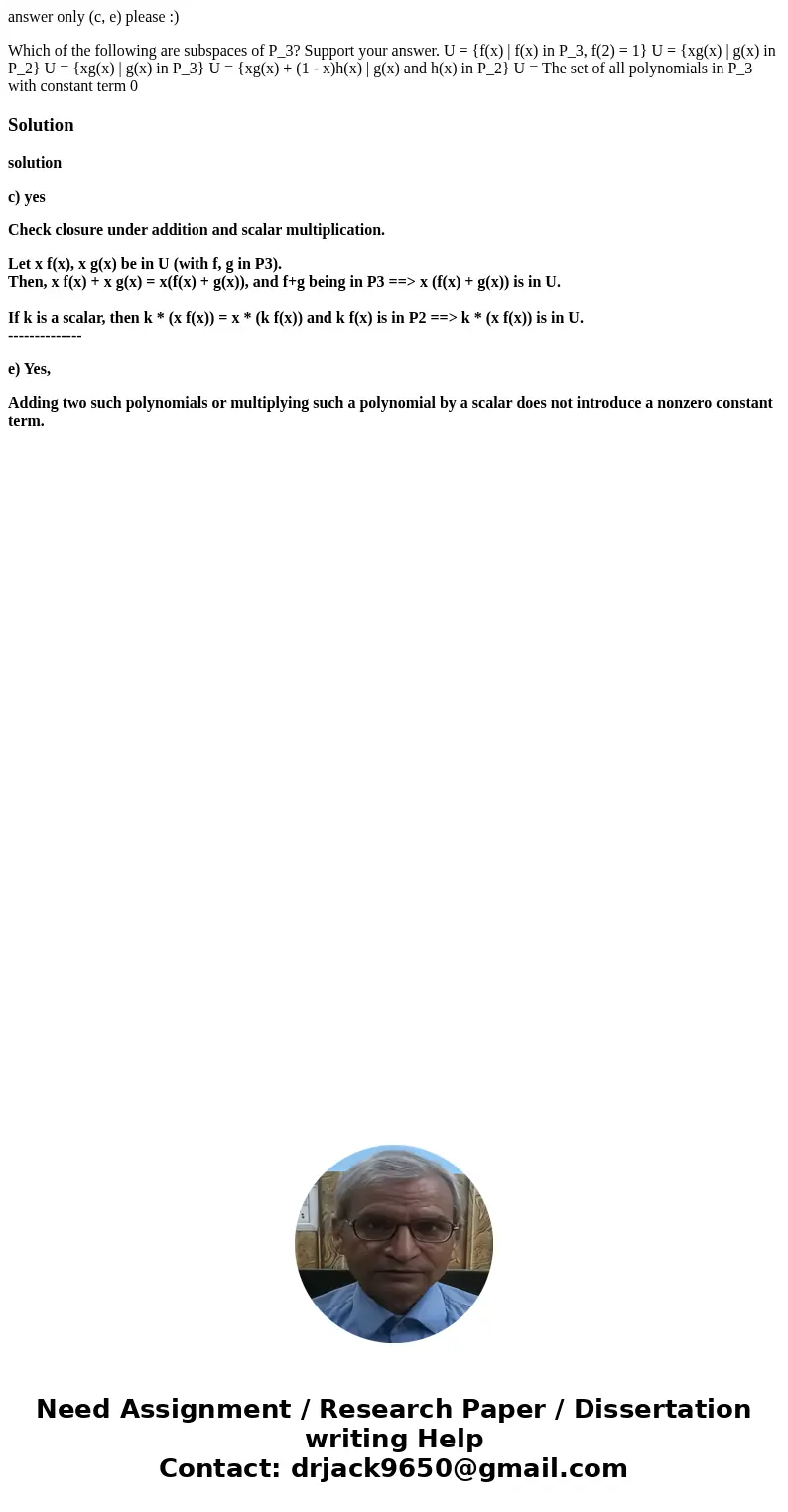answer only c e please Which of the following are subspaces
answer only (c, e) please :)
Which of the following are subspaces of P_3? Support your answer. U = {f(x) | f(x) in P_3, f(2) = 1} U = {xg(x) | g(x) in P_2} U = {xg(x) | g(x) in P_3} U = {xg(x) + (1 - x)h(x) | g(x) and h(x) in P_2} U = The set of all polynomials in P_3 with constant term 0Solution
solution
c) yes
Check closure under addition and scalar multiplication.
Let x f(x), x g(x) be in U (with f, g in P3).
Then, x f(x) + x g(x) = x(f(x) + g(x)), and f+g being in P3 ==> x (f(x) + g(x)) is in U.
If k is a scalar, then k * (x f(x)) = x * (k f(x)) and k f(x) is in P2 ==> k * (x f(x)) is in U.
--------------
e) Yes,
Adding two such polynomials or multiplying such a polynomial by a scalar does not introduce a nonzero constant term.

 Homework Sourse
Homework Sourse